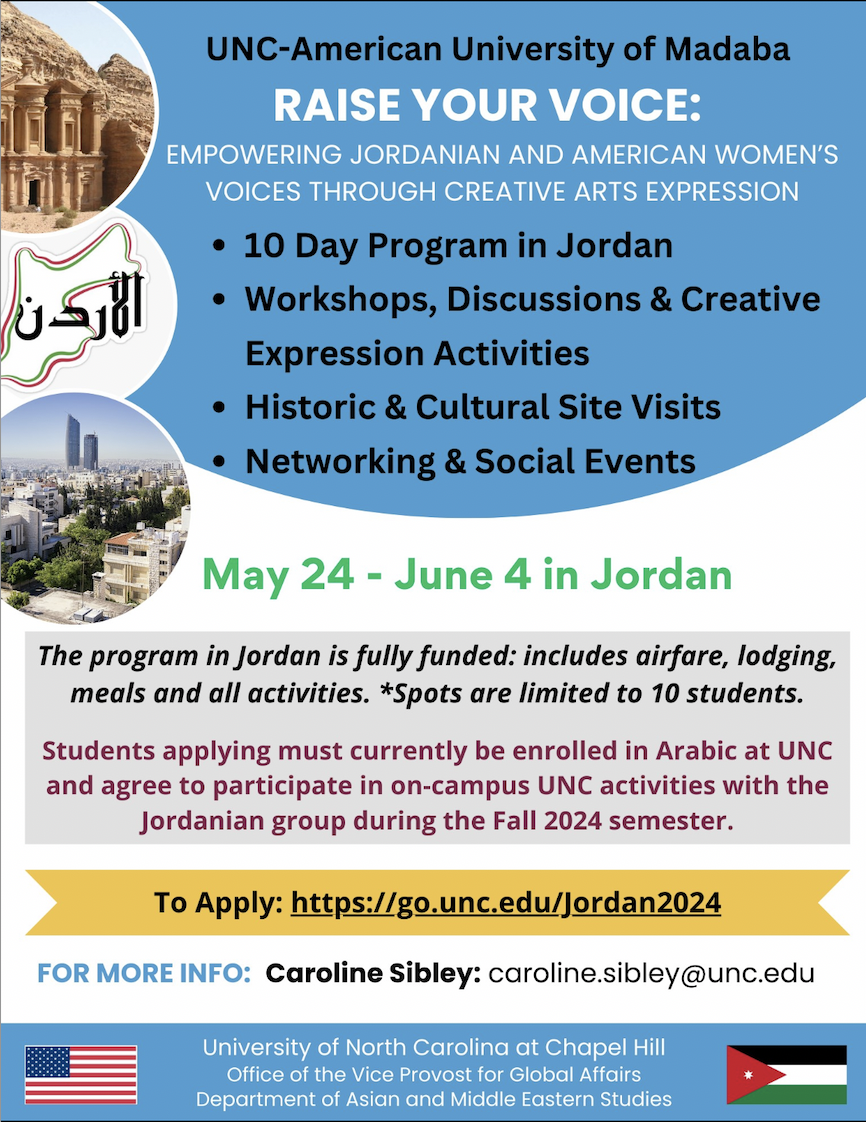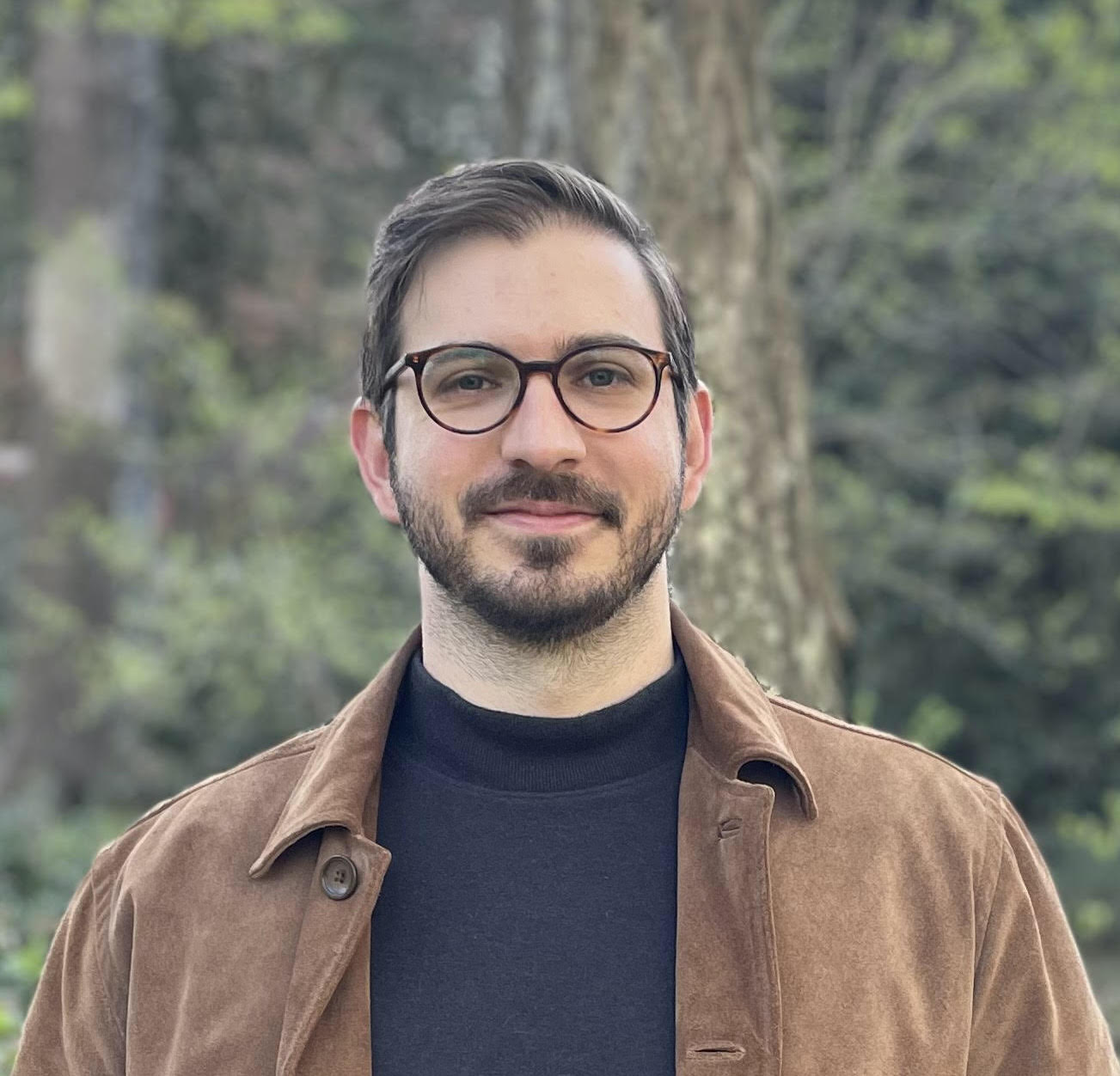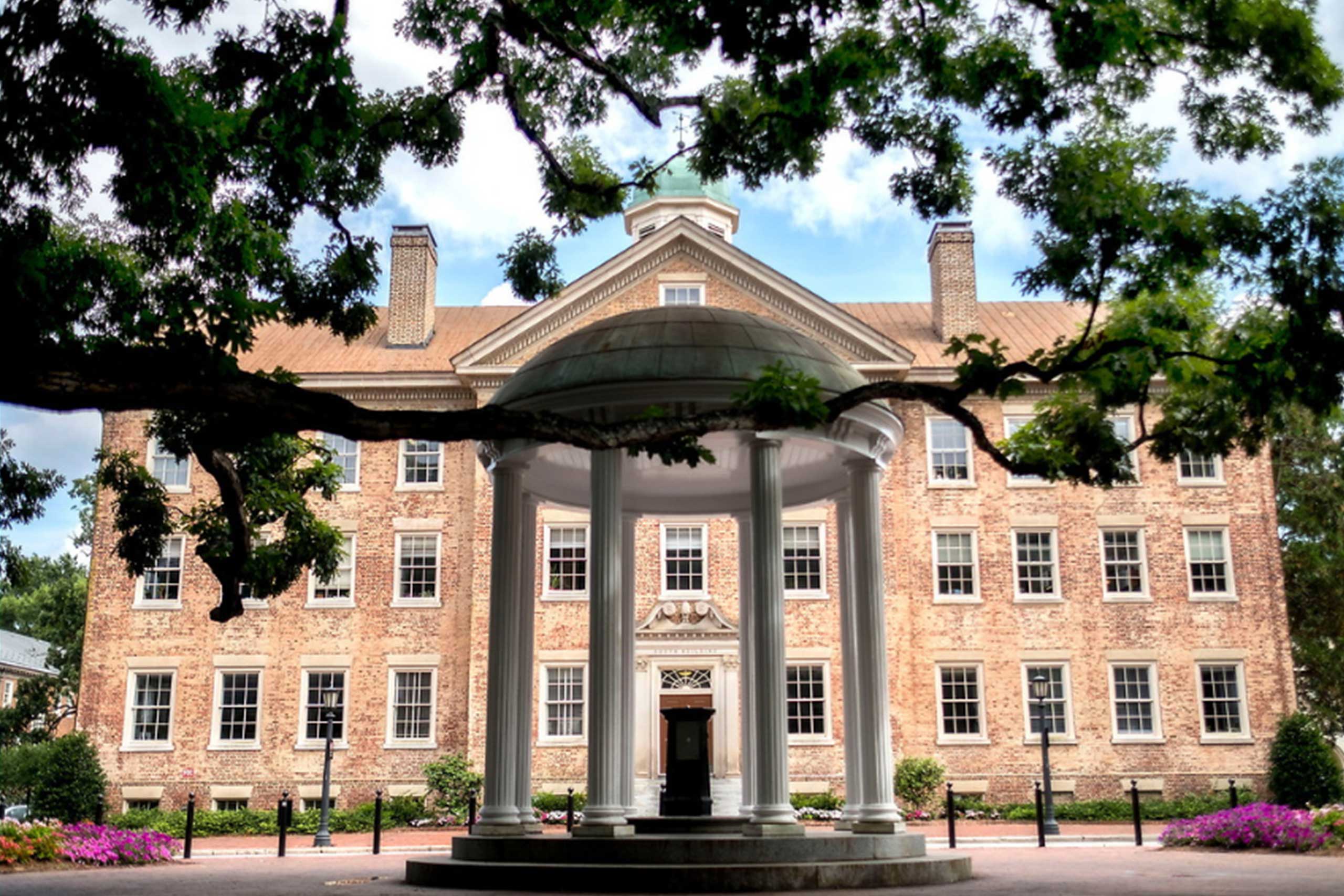
Mohammed Eid training teachers at Trinidad Norte School to use a tablet during a service trip to Nicaragua.
Now a graduate student at the University of North Carolina at Chapel Hill, Eid is working to find solutions to the refugee crisis he experienced firsthand.
“I came to Carolina with a purpose: to find out how we can make humanitarian aid more effective for refugees and displaced people because they are my people,” he said. “They are my family.”
Eid is among nearly 150 students who have pursued master’s degrees in global conflict resolution through the Duke-UNC Rotary Peace Center, a collaboration between UNC-Chapel Hill, Duke University and international service organization Rotary. The center, one of only six in the world, prepares students to become peace builders in conflict zones across the globe.
For Eid, who is pursuing a certificate in global studies, that means learning how to provide sustainable, community-focused support to refugees around the world. For Venera Urbaeva, a peace fellow enrolled in the UNC Gillings School of Public Health, that means building support centers to protect the mental and physical health of children affected by war.
“Being a Rotary Peace Fellow gives me a unique opportunity to study peace and conflict resolution, and at the same time focus on child and family well-being,” Urbaeva said. “We need to dig deeper and understand why and how systemic injustices are affecting the health of our future generation.”
Fellows pursue master’s degrees at either Carolina or Duke, taking advantage of both universities’ strengths in global studies and international development policy. Regardless of which institution a fellow is enrolled in, each cohort takes one course together per semester, focusing on a particular aspect of conflict resolution.
Susan Carroll, managing director of the center, said the fellows’ commitment to peace building often stems from their own experiences living and working in conflict situations.
“Normally you hear about global conflict and you turn the radio off and it doesn’t stay with you,” she said. “But after you hear these fellows’ stories about civil war or daily life during a major disease outbreak, you don’t think about things the same way. The news means a lot more to me now.”
Alumni of the program, who represent nearly 60 countries, have pursued careers with the United Nations, the World Bank, local schools, nongovernmental organizations and more.
When Urbaeva graduates, she plans to build new protection programs for vulnerable children, while Eid intends to join an emergency response team with the UN in Gaza. He hopes his research will inform a new strategy for responding to the refugee crisis — one that goes beyond delivering food, water and other necessities.
“I want to make progress toward really helping people on the ground, and Rotary and the University have been very supportive of that,” he said.
But Carroll said peace fellows don’t just have an impact when they leave campus — they have an impact on campus, too. Many fellows serve as teaching assistants and help undergraduates prepare for study abroad programs.
“Over the years they have encouraged a very rich, culturally and globally diverse curriculum,” she said. “They are amazing students who really contribute a lot to this community.”
And Urbaeva said the feeling is mutual.
“I love the welcoming and friendly spirit of the people here,” she said. “Most importantly, I’m thankful for the relationships I have built with faculty, groupmates, peace fellows and friends. It is a blessing. I am very humbled to be here.”
Re-posted from: https://global.unc.edu/news/rotary-peace-center-educates-a-new-generation-of-peace-builders-at-carolina/






